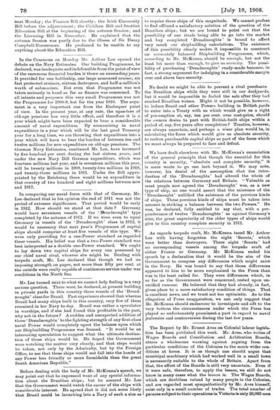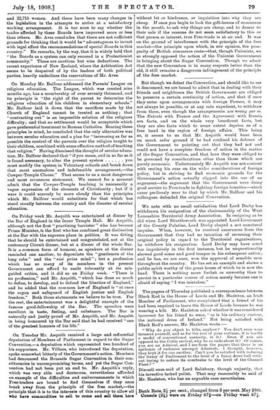The Report by Mr. Ernest Ayes on Colonial labour legisla-
tion has been published this week. Mr. Ayes, who writes of Wages Boards and Conciliation and Arbitration Boards, utters a wholesome warning against arguing from the particular conditions of the Colonies to the much wider con- ditions at home. It is as though one should argue that municipal machinery which had worked well in a small town is necessarily suitable to the whole of Britain. Apart from that, the effect of the Boards is still very uncertain. Even if it were safe, therefore, to apply the lesson, we still do not know in many cases what the lesson is. The Wages Boards, which are doubtless valued by many people in the Colonies, and are regarded most sympathetically by Mr. Ayes himself, exist only in a small number of trades. The total number of persons subject to their operations in Victoria is only 26,063 men and 22,715 women. And there have been many changes in the legislation in the attempts to arrive at a satisfactory working arrangement. It is too soon to say whether the trades affected by these Boards have improved more or less than others. Mr. Ayes concludes that there are not sufficient grounds for thinking that it would be " advantageous to invest with legal effect the recommendations of special Boards in this country." He remarks, by the way, that it is widely held that "the Boards as a system can only succeed in a Protectionist community." These are cautious but wise deductions. The recent experience of New Zealand, where the Arbitration Act seems to be despaired of by the leaders of both political parties, heavily underlines the reservations of Mr. Ayes.







































 Previous page
Previous page